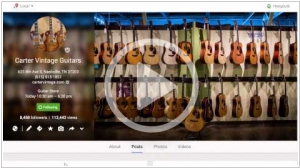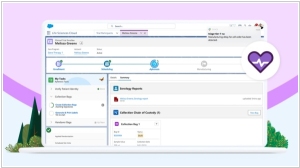Location-based small business catalogs
Updated: November 17, 2023
Location-based small business catalogs are powerful resources that connect consumers with nearby businesses and services. These catalogs use geolocation technology to identify a user's current location and display a curated list of small businesses in the vicinity. They offer detailed information about each business, such as contact details, operating hours, products or services offered, and customer reviews. Location-based small business catalogs are typically available as mobile apps or web platforms, enabling users to explore local businesses conveniently and make informed decisions about where to shop or dine. These catalogs benefit both consumers and small businesses, as they provide visibility to local enterprises and encourage community support. By promoting nearby businesses, location-based small business catalogs contribute to fostering a vibrant local economy and encouraging sustainable shopping habits.
See also: Top 10 Social Media Management tools
See also: Top 10 Social Media Management tools
2023. Atmosfy, an app that helps discover local businesses through short-form video, raises $12M
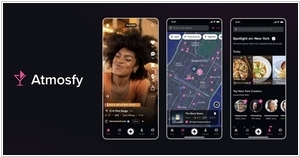
Atmosfy, a mobile application that facilitates the discovery of restaurants and local establishments through brief videos, has secured $12 million in seed funding. The app enables users to explore various aspects such as dining, nightlife, and hotels by perusing concise videos contributed by both locals and visitors. Atmosfy is strategically designed to offer users an authentic feel of the atmosphere at a specific location, providing a real-time experience. Essentially described as the fusion of Yelp and TikTok, the app allows users to share their experiences by recording short videos, specifying the business location, and uploading them to the platform. Subsequently, users can enhance their content by adding tags and descriptions.
2020. Yelp adds new features for reopening businesses
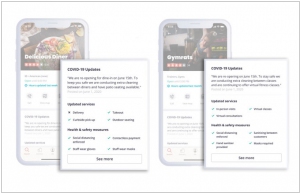
Over the past few months, Yelp has been taking measures to assist businesses grappling with the repercussions of the COVID-19 pandemic. These efforts include initiatives such as waived fees, virtual service listings, and GoFundMe fundraisers. As the United States moves towards reopening, albeit with ongoing debates about the timing and approach, it is evident that businesses will require new tools to navigate the evolving landscape safely. With this in mind, Yelp is introducing two new tools today. Additionally, Yelp plans to employ a combination of human moderation and machine learning to update these sections regularly, incorporating information provided by businesses elsewhere, such as details regarding curbside pickup or virtual services.
2020. Foursquare merges with Factual
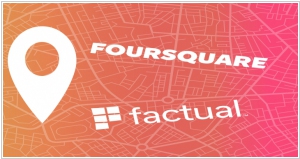
Foursquare, the renowned location platform, has revealed its plans to merge with Factual. Foursquare has transformed significantly since its inception in 2009. Initially, it served as a location-based social network, enabling users to check in at various places, share their experiences with friends, and earn badges. However, the company has evolved over time into an advertising and marketing platform that capitalizes on the power of location data. On the other hand, Factual, also established in 2009, started as a repository for open data but gradually shifted its focus towards leveraging location data to enhance advertising efforts. Factual offers brands the capability to track the effectiveness of their marketing campaigns by measuring the extent to which such campaigns drive physical visits to stores. Given these synergies, the merger between Foursquare and Factual appears to be a promising match.
2019. Google ramped up competition with Facebook and LinkedIn with new tools for local businesses
Google continues its competition with Facebook and LinkedIn through its suite of tools called Google My Business. The recent update brings several additional features to enhance business profiles and make them more appealing. One of these features is the ability for businesses to include their logo in their profile, along with the option to upload photos that will be displayed in a dynamic module on the profile (soon to include captions), as well as set a profile cover photo. These additions aim to rival the capabilities of Facebook Pages. Another new feature allows businesses to claim a short name and URL for their profile, enabling easier navigation for users directly to their profile page. In the coming months, customers will also be able to search Google Maps using these short names. Additionally, a new feature called "welcome offers" has been introduced, enabling businesses to reward new customers for following them by offering discounts or special deals.
2016. Foursquare 10 puts search front and center
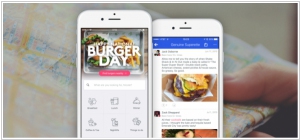
Foursquare has introduced a redesigned version 10 of its app, delivering an enhanced user experience. The new homepage features a significantly faster search functionality, incorporating five chiclets that represent the most popular search categories: breakfast, lunch, dinner, nightlife, coffee/tea, and things to do. Additionally, Foursquare aims to further establish trust among its users. When a user posts a review, the app now displays the number of times that user has actually visited the reviewed location. This provides readers with valuable insights into the authenticity of the reviews, distinguishing them between "verified" users and others. Furthermore, Foursquare is actively working on improving its understanding of user location. This is evident not only in the search results it provides but also within the homepage itself. For instance, if a user has recently arrived in London, they will be greeted with a prominent banner acknowledging their presence in the city. The app is also designed to recognize special occasions such as Ice Cream Day or Burger Day, offering relevant banners that users can click on to discover suitable places to celebrate.
2016. Foursquare will allow businesses to know if their ads bring customers into actual store
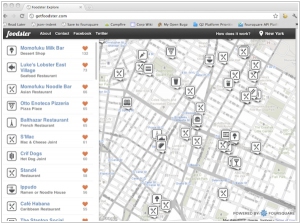
Foursquare has introduced a new offering aimed at enabling advertisers to assess the impact of their campaigns. Through Attribution Powered by Foursquare, the company is granting access to its data for advertisers, irrespective of whether they run campaigns within the Foursquare or Swarm apps. The data primarily revolves around location, which sets Foursquare apart from competitors such as Facebook and Twitter. These platforms have also been striving to extend their advertising capabilities beyond their respective properties.
2016. Foursquare raised $45M to grow its business services
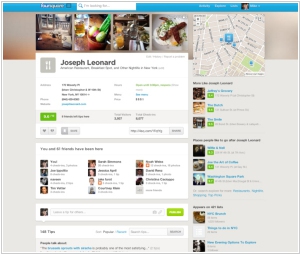
Foursquare has secured $45 million in funding to advance its business and enterprise location services. The company's media division, Pinpoint, which utilizes location information for businesses and advertisements, experienced a significant revenue growth of 170 percent in 2015 compared to the previous year. On the enterprise side, Foursquare has observed a remarkable 160 percent expansion, driven by its Places API customers and the newer Place Insights business. Place Insights has emerged from Foursquare's innovative location system, Pilgrim, which accurately identifies users' locations even without explicit check-ins. This capability not only enables Foursquare to provide personalized recommendations to its consumer app users but also generates valuable foot traffic data that can be leveraged by enterprise clients. Place Insights empowers enterprise customers to access anonymized aggregate trends, assisting them in determining optimal locations for physical businesses, inventory placement, investment decisions, and more.
2015. Facebook now contains 40M active small business pages
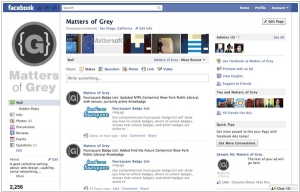
Facebook has unveiled new programs tailored for small businesses, particularly those engaged in advertising. Additionally, Facebook has reported a growth in the number of active small business Pages, which now stands at 40 million compared to last June's 30 million. Surprisingly, out of these, only 2 million are active advertisers. This statistic is significant considering the decreasing reach of organic (non-ad) content from Facebook Pages. To address this, Facebook is introducing one-on-one chat support for advertisers. Previously, small businesses purchasing ads on Facebook had to rely on email communication and wait for a response. However, due to numerous requests for live support, Facebook has decided to provide it. Initially, the program will be launched in the United States, United Kingdom, and Ireland, with plans to expand to other countries in the coming months.
2014. Yelp allows not only choose the hotel, but to book it too
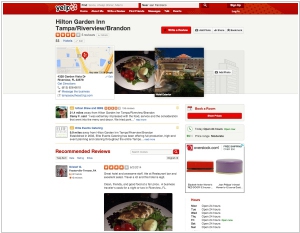
Review site Yelp has collaborated with travel booking site Hipmunk, enabling users to conveniently book hotels directly through Yelp's website and mobile applications. This integration follows Yelp's previous partnerships announced earlier this year, including collaborations with companies such as OpenTable and Delivery.com, aimed at providing seamless transaction experiences for users without having to leave the Yelp platform. When users search for supported hotels on Yelp, they will now encounter a prominent "Book a room" button on the hotel page. Should they decide to proceed with the booking, they will be seamlessly redirected to a dedicated booking page. By incorporating booking capabilities, Yelp becomes more competitive with platforms like TripAdvisor, which allows users to book accommodations through its website in partnership with Expedia, Booking.com, and Hotels.com.
2014. Foursquare officially kills check-in
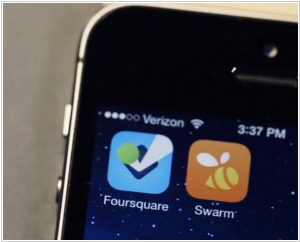
Foursquare, the trailblazing company that introduced check-ins five years ago, has made the decision to remove this feature from its core app. The revamped Foursquare now focuses on local discovery, resembling a Yelp-like app, while check-ins have been separated into another app called Swarm. Foursquare CEO Dennis Crowley justified this move by highlighting that most users either exclusively utilize Foursquare for check-ins or solely for local discovery, with only a few engaging in both activities. By shifting away from check-ins, the company aims to strategically position itself in a highly competitive landscape. Today, numerous app companies recognize the significant potential of aiding local businesses in connecting with their customers through mobile apps. Foursquare's transition reflects this understanding while acknowledging the intense competition within this market.
2014. Google created unified marketing dashboard for small business
Google has introduced a new marketing service tailored for small businesses called Google My Business. This comprehensive offering combines the functionalities of the previous Google Local, Google Maps for business, and the social network Google+. In essence, it serves as a centralized platform for small businesses to register and ensure their presence across various Google services, including Google Search, Google Maps, and Google+ network. Existing accounts and pages associated with these services are seamlessly transferred to Google My Business, streamlining information management by consolidating it in a single location. Additionally, Google has developed a dedicated mobile application for Android devices, enabling businesses to conveniently edit company information, access and respond to customer reviews. It's worth noting that despite its advantages, the limited popularity of the Google+ social network among customers remains a notable drawback of the service.
2012. Google+ Local wants to help your local business to attract new customers
If you have a local business (shop, café, hotel, gym ...) and you still haven't registered it on Google - now is the best time to do it. Today, Google launching Google+ Local service, which can be really useful for local businesses. Google+ Local is not built from the scratch. It's a combination of Google Places (Google's old local catalog) and Zagat (the popular location-service acquired by Google last year). And, as clear from the title, it's working on top of the Google+ social network. All places (shops, cafes, hotels ...) from Google Places and Zagat were turned into Google+ pages, and now you can leave reviews on them and read reviews by your friends and other people. At the moment there are more than 80 million local pages, so you'll probably find a lot of places in your city. And the main advantage of Google+ Local - is its integration with the general Google search and Google Maps. ***


